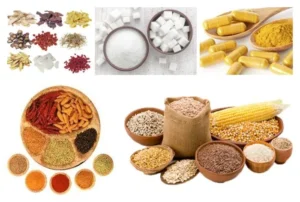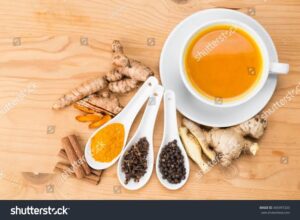Back to: Botany 500 Level
My Afrilearn Superstar, how body?
I dey happy say you show for class today again! Today’s lesson na one wey go sweet you like fresh cocoa drink on a rainy morning. We dey talk about Clove, Ginger, Coffee, Cocoa, Oil Palm, etc. These are not just crops o—they are part of our culture, economy, and everyday life. Whether na the zobo your aunty dey sell, the coffee your uncle takes before work, or the palm oil that colours your egusi soup, these plants play big roles in our lives. Make we waka go learn how!
Clove, ginger, coffee, cocoa, oil palm, etc.
Nigeria and many African countries are blessed with crops that the whole world dey rush us for. Some make our food sweet, some give us energy, while others bring us money through export. These crops—like clove, ginger, coffee, cocoa, and oil palm—are called economic crops because they have both food and money value. Na these crops dey power many industries in Nigeria, and they’re also deeply rooted in our traditions.

Let’s break down these powerful plants one by one.
Clove (Syzygium aromaticum)
Clove na small but mighty spice. It comes from the dried flower buds of the clove tree. You fit smell am for some traditional medicine or zobo drink. E dey used for toothache relief, meat seasoning, and even to drive away mouth odour. Though we no grow clove plenty like Tanzania or Indonesia, we dey use am plenty for food and local medicine.
Ginger (Zingiber officinale)
This one no need introduction. From kunun zaki to pepper soup, ginger dey everywhere. Grown mostly in Kaduna and Plateau states, ginger dey used for cooking, medicine, and tea. E helps digestion, clears cold, and adds serious flavour to food. Nigeria na one of the top producers of ginger in Africa.
Coffee (Coffea spp.)
You sabi that strong, dark drink wey dey wake people up? That na coffee! Though countries like Ethiopia dey lead in coffee culture, Nigeria also dey grow coffee in places like Taraba and Cross River. Na mostly small-scale farmers dey plant am. Coffee dey important because it supports local income and export.
Cocoa (Theobroma cacao)
This na king for Nigeria economic crops. Grown mainly in the South West—Ondo, Ekiti, and Osun—cocoa is the seed used to make chocolate. Before oil boom, cocoa na major foreign exchange earner for Nigeria. Farmers still dey harvest and sell cocoa beans today, and we dey try revive the industry. Plus, cocoa butter from the seeds dey used in body creams and soaps.
Oil Palm (Elaeis guineensis)
You fit even call this one our heritage crop. From palm oil, palm kernel oil, to brooms and baskets from the leaves, no part of the oil palm tree dey waste. Used for cooking, soap, cream, and even fuel, oil palm grows in many southern states like Akwa Ibom, Abia, and Delta. Nigeria used to be the top oil palm producer in the world until Malaysia overtook us using our own species!

Others Worth Knowing
- Turmeric: Like ginger, turmeric dey used for food and medicine, and gives food that yellow colour.
- Kolanut: Used in traditional ceremonies, hospitality, and prayer in many cultures across Nigeria.
- Shea (Vitellaria paradoxa): Produces shea butter for creams, soap, and cooking—common in the North.
Summary:
- Clove, ginger, coffee, cocoa, and oil palm are important economic plants in Nigeria.
- These crops are used in food, medicine, industry, and export.
- They support both local communities and the national economy, and are part of our cultural identity.
Evaluation:
- List two Nigerian states where cocoa is grown.
- What are two uses of oil palm in Nigerian homes?
- Why are these crops called “economic crops”?
You’ve just powered up your knowledge of Nigeria’s most valuable crops. Keep shining like palm oil in fresh soup. With Afrilearn, you dey go places. Next class go sweet pass this one. See you there!
